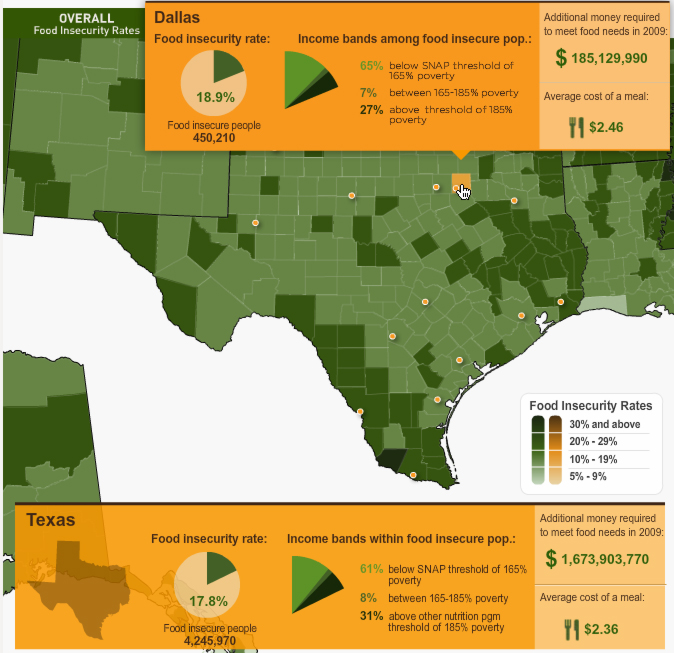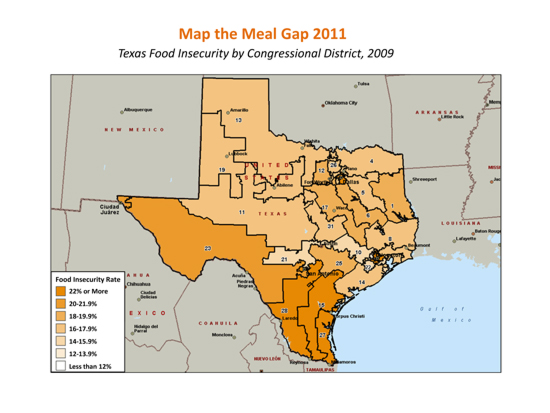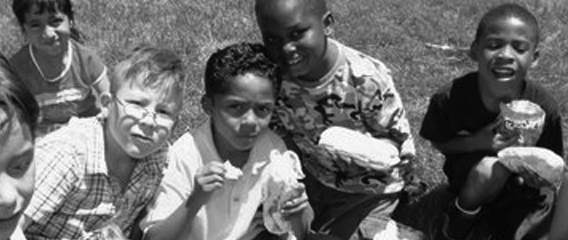Meeting the Physical Needs is Step One
The Hunger Landscape in the Greater Dallas area is vast. The majority of the more than 280,000 children in the Greater Dallas area, facing hunger on a daily basis, live in the southern sector of our city. In the Dallas Independent School District, more than 87% of the children are eligible for lunch program assistance. Educators are discovering that many challenges in the classroom are related to hunger. FEED 3 is a joint project with the North Texas Food Planning Association to end the hunger crisis in North Texas. Feed the Body is a grass roots campaign that identifies and addresses daily hunger needs of impoverished neighborhoods in North Texas. This is accomplished on local levels in four ways.
1. WEEKENDS can be a hungry time for children who depend upon school meals for daily nourishment. Weekend food backpacks are provided at area schools where children are on the government school lunch program.
2. SUPPLEMENTAL GROCERIES are provided to local food pantries to provide supplemental groceries for families each week.
3. INDUSTRIAL KITCHENS built in targeted areas, to provide daily hot meals for children after school.
4. UTILIZE TRAINED AND CHURCH VOLUNTEERS to help register families with USDA programs that assist families with hunger and nutritional challenges.
DIRECT WAYS TO MAKE A DIFFERENCE
Adopt a Child - You may wish to sponsor one or more children in one of our targeted schools. For a donation, you can ensure that a child will not go hungry at home on weekends.
Adopt a School – There are currently 70 elementary schools in DISD that need backpacks provided for children who have little or no food on weekends. Your business, church, or civic group can adopt a school, and sponsor backpacks for a weekend(s).
Adopt a Pantry - There are 24 selected sites where families receive supplement groceries. A generous donation can provide families supplemental groceries for a month.
Adopt a Kitchen - There are four targeted areas of our city where industrial kitchens are needed to feed 250 children each afternoon. Located near schools with the largest concentration of children needing after school meal, the food costs are supplemented by the USDA, and local retired residents are trained in food preparation. These locations also provide after-school tutoring for children in a safe environment.
Volunteers: You can learn how to become one of our FEED 3 volunteers that helps survey impoverished communities, working with local churches and non-profits to educate families about programs that are available for them.
Hunger Insecurity Map

Food Insecurity by Congressional District









